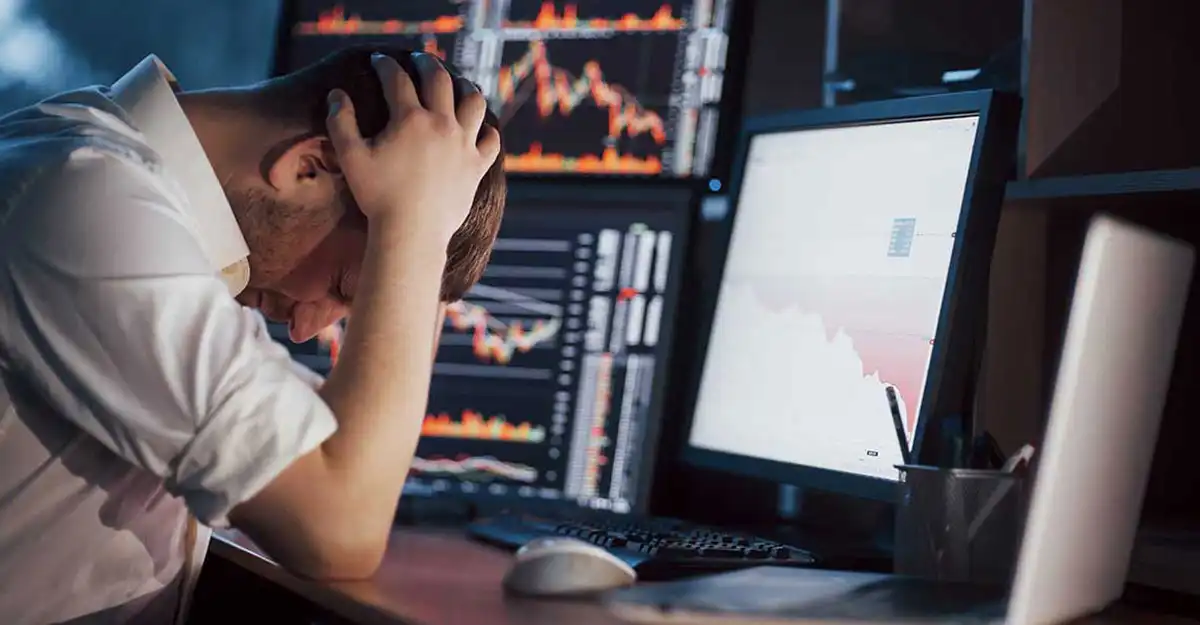Foreign Exchange (Forex) trading is the conversion of one currency into another for either practical purposes or for gaining profits. Forex trading has developed into the largest trading market in the world over recent years. It operates 24/7 all over the world, bringing together international banks and corporations to trade with each other. Foreign Exchange is available in all currencies and access to platforms is within reach for everyone with an internet connection.
The Forex marketplace primarily consists of affluent businesses and banks that are well informed about how trading works. It is a competitive market; in a short period of time a trader can gain profits or lose part or all of their invested capital. Therefore, it is necessary for beginner traders to have adequate trading education and understand the risk / reward involved in trading the financial markets.
Please keep in mind that the Forex market is a recognisable legitimate trade where the world’s currencies are traded. It is not a scam in itself. However, scammers take advantage of the complexities around the Forex market, harmfully withholding important information about market realities from their unsuspecting victims, claiming their scheme, information or software robot will bring success.
What is a Forex Scam
Foreign Exchange is a legitimate trade that must be regulated like any other. However, because there is no centralized exchange, some take advantage of the situation and perform scams against traders. People who lack basic knowledge and understanding of FX trading can easily fall victims to such scams.
Forex scam operators use dishonest and illegal practices to cause financial loss to traders. They target traders from different age groups and trading experience levels, always searching for innovative and smarter ways to deceive.
Today, they are also expanding on social media platforms such as Instagram, Facebook, and Youtube. Their goal is to tempt and lure people in investing money with empty promises of getting rich quickly. If you wish to get involved with online investments, you must educate yourself on Forex trading before joining the market. This will place you in an advantageous position and you will avoid falling victim to Forex scams.
Forex Scam Techniques and Illegal Practices Under European Laws
There are certain techniques scammers employ to manipulate their victims and extract as much money as possible. Firstly, they strive to establish a friendly relationship with the potential victims and manipulate them to rely on their advice. They would usually advise investors in an aggressive manner and provide them with ambiguous or misleading information. This includes empty promises of forex bonuses, profits or conditional gifts.
Scammers will likely compose false urgent situations and pressure their victims to “recover” after a loss, meaning to invest again. They would render it impossible for traders to withdraw their funds after an investment. It is also common to have dysfunctional platforms or irregular execution of orders.
Forex scam operators use dishonest and illegal practices to cause financial loss to traders. They target traders from different age groups and trading experience levels, always searching for innovative and smarter ways to deceive. We can help you identify if you have been scammed and take immediate legal measures to protect your interests.
Types of Forex Scams
1. Point-Spread Manipulation
One of the initial trade scams were computer manipulations of the bid-ask spread in favour of the broker. Increasing the spread between the bid and sell price to 7-8 pips instead of the usual 2-3, helped the broker earn more money.
2. Automated Trading Programs (Robot Scams)
This is a persistent old and new scam in the trade market. It aims to lure newcomers to automated trading, which is also called expert advisors, operating without human intervention. Many of these systems have not been through formal review and tests by an independent source.
3. Signal-Seller Scam
A popular modern-day scam where retail firms, asset management companies or individual traders offer specialised advice on investing. They suggest favourable times to buy or sell a currency pair based on false expertise with promises of wealth.
How to identify a Forex Scam
Investing money on Foreign Exchange platforms always bears a financial risk; there is no guarantee that you will receive profits. A common tactic of scammers is to promise unusually large profits with little or no financial risk. There is a saying “the only free cheese is in the mousetrap”. Thus, if someone assures you huge earnings in return of your investments, then it is probably a red flag.
- The first step is to Identify if the company is regulated by a financial regulatory agency and authorised to provide services in your country of residence.
Many forex companies legally operate in Cyprus and are regulated by the Cyprus Securities and Exchange Commission (the CySEC), these companies are authorised to provide investment services to traders residing in the European Economic Area (EEA) via passporting cross-border operations. - Scammers claim that their offices and operations are based in countries with well know established financial regulatory agencies such as the CySEC to lure customers in investing their funds in a European forex broker. These companies usually do not have a license and are not registered with any regulatory agency. They tend to operate internationally and therefore lost funds usually travel through different jurisdictions making it difficult for investors to trace or claim their lost funds.
In the United Kingdom, for example, a company can offer financial products and services if they are approved by FCA. If they are not registered there, it is probably a Forex scam. The FCA database includes details of every regulated forex broker offering services in the UK. It shows which of them are regulated, cancelled or stopped being regulated. When in doubts, search the Forex company name in the Financial Conduct Authority Services Register: https://www.fca.org.uk
CySEC: who is
Cyprus Securities and Exchange Commission (the CySEC) is the financial regulatory agency of Cyprus. It supervises and regulates Cyprus investment firms (CIF) and is a member of the committee of the European Securities and Market Authority (ESMA) an independent European Union (EU) Authority that contributes to safeguarding the stability of the EU’s financial system by enhancing the protection of investors. It aligns with the Markets in Financial Instruments Directive (MiFID), a European regulatory framework that increases the transparency across the EU financial markets, ensuring appropriate levels of investor protection and strengthening the supervisory powers of regulators. Search the name of the Forex company in the Cyprus Securities and Exchange Commission CIF Regulated Entities List: https://www.cysec.gov.cy/en-GB/entities/investment-firms/cypriot/
What to do after a Scam
If you suspect that you have fallen victim of a Forex scam consult a law professional as soon as possible. Legal experts that understand the financial sector can handle your case more efficiently.
You can report the scam to the appropriate authority (for example, CySEC or FCA) so they can take further action. It is also helpful to share your experience with the Forex trade community to prevent scammers from taking more victims.
What is the Legal Procedure to follow?
Our Forex Lawyers specialize in cases related to the financial sector, such as Forex, Hedge Funds, Binary Option Trading and banking Litigations. With our experience and knowledge of the sector we have managed to successfully handle client’s cases, with many of our clients receiving partial and full compensation from the companies.
Taking legal action and or issuing a Mareva injunction against a company can have a major effect on the companies activities. This type of freezing order has global force and the primary function of the injunction is to maintain the integrity of the court process by preventing the defendant from dissipating assets and becoming judgment-proof.
If you are a victim of online fraud / scam or have lost funds with a Forex broker through no fault of your own, please email to us at info@chambers.law to arrange a discussion with lawyers in the Forex Trading Litigation team



